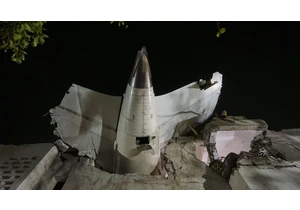The Securities and Exchange Commission fined four companies on Tuesday with misleading investors about the impact the 2020 hack of SolarWinds had on their own systems.
Unisys, Avaya, Check Point, and Mimecast will each pay civil penalties to settle the agency’s charges that they downplayed the impacts of the hack through their respective public disclosures.
“While public companies may become targets of cyberattacks, it is incumbent upon them to not further victimize their shareholders or other members of the investing public by providing misleading disclosures about the cybersecurity incidents they have encountered,” Acting Director of the SEC’s Division of Enforcement Sanjay Wadhwa said in a statement.
In 2020, a Russian backed group planted malware in the SolarWinds system that sent out updates to SolarWinds’s Orion software. When several thousand of the company’s clients installed the update, they also unknowingly installed the malware. It ended up becoming one of the most destructive and costly cyberattacks in history, as NPR put it.
According to the SEC, Unisys, Avaya, and Check Point learned in 2020, and Mimecast learned in 2021, that the actor behind the hack had accessed their systems without authorization. Still, the SEC argued, each minimized the incident in public disclosures. The SEC said that Unisys also described its risk as hypothetical, when it already knew it had been breached twice.
Unisys will pay a $4 million civil penalty. Avaya will pay $1 million, Check Point will pay $995,000, and Mimecast will pay $990,000.
A Check Point spokesperson said: “As mentioned in the SEC’s order, Check Point investigated the SolarWinds incident and did not find evidence that any customer data, code, or other sensitive information was accessed. Nevertheless, Check Point decided that cooperating and settling the dispute with the SEC was in its best interest and allows the company to maintain its focus on helping its customers defend against cyberattacks throughout the world.”
An Avaya spokesperson made a similar comment. “We are pleased to have resolved with the SEC this disclosure matter related to historical cybersecurity issues dating back to late 2020, and that the agency recognized Avaya’s voluntary cooperation and that we took certain steps to enhance the company’s cybersecurity controls,” the spokesperson said. “Avaya continues to focus on strengthening its cybersecurity program, both in designing and providing our products and services to our valued customers, as well as in our internal operations.”
Spokespeople for Unisys and Mimecast did not immediately return Fast Company‘s requests for comment.
Login to add comment
Other posts in this group

IShowSpeed and Jynxzi are teaming up to host a $100,000 Fortnite tournament, bringing together 100 top creators for what’s shaping up to be the biggest celebrity Fortnite match to date.

Mark Zuckerberg said on Monday that Meta Platforms would spend hundreds of billions of dollars to build several massive

Meta may not currently lead the race for AI superintelligence, but it&

Southern small-town drama has made its way to TikTok. If you’re not familiar

A preliminary finding into last month’s Air India

In May of 1995, the video game industry hosted its first major trade show. Electronic Entertainment Expo (E3) was designed to shine a spotlight on games, and every major player wanted to stand in

Robinhood cofounder and CEO Vlad Tenev channeled Hollywood glamour last month in Cannes at an extravagantly produced event unveiling of the trading platform’s newest products, including a tokenize
